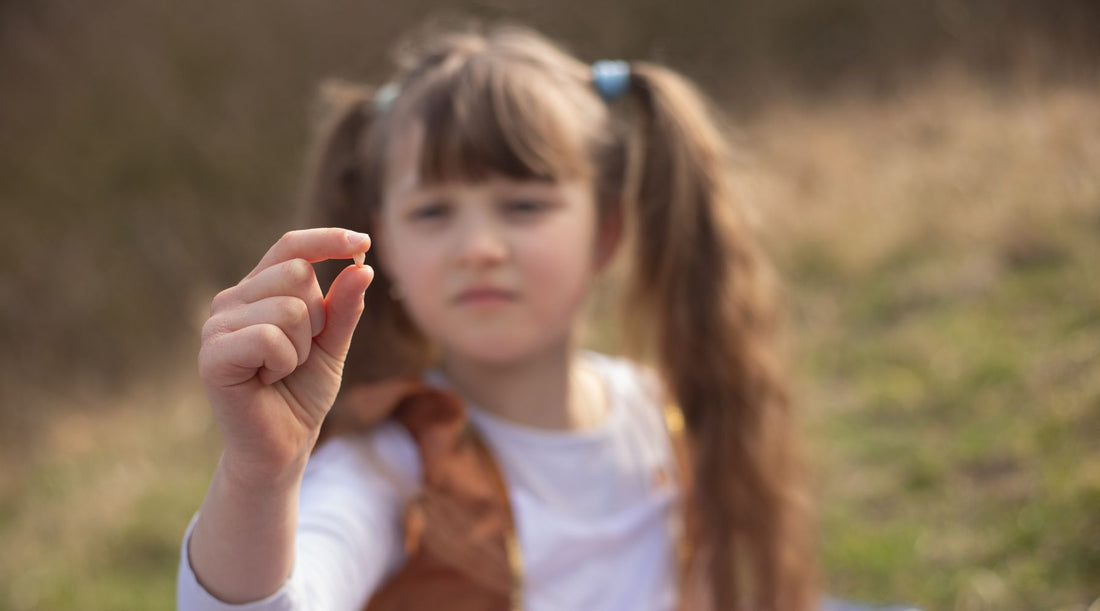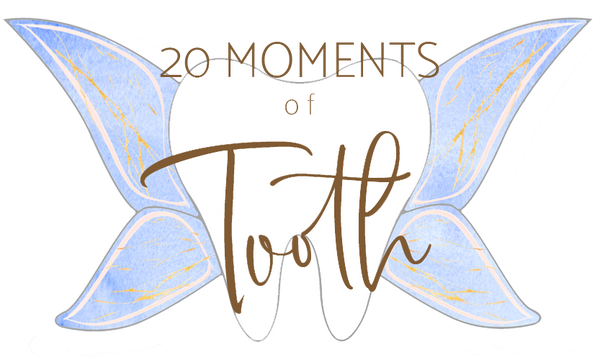
Unlocking the Secrets of Baby Teeth: A Guide for Parents
Share
As parents, we cherish every milestone in our child's development, and the appearance of those first wiggly baby teeth is no exception. It's a sign that your little one is growing, but it can also raise questions about what to expect. Let's dive into the science behind baby teeth, from their growth to their loss, and how to maintain excellent oral health along the way.

Baby Teeth vs. Permanent Teeth
Baby teeth, also known as primary or deciduous teeth, serve as placeholders for the adult teeth that will eventually replace them. These little warriors are essential for your child's oral development.
Children typically have 20 baby teeth, which start appearing around 6 months of age. They are like the initial drafts of the beautiful smiles they'll have later in life.
The Eruption Timeline

Baby teeth erupt in a predictable order, with the lower central incisors usually being the first to make their appearance, followed by the upper central incisors and so on. It's like watching nature's own puzzle being put together!
By age 3, most children have a full set of baby teeth, and you'll be amazed at how fast those little teeth sprout.
The Role of Baby Teeth

Baby teeth play a crucial role in helping children speak, chew, and maintain proper alignment for the permanent teeth beneath them. They are like the foundation upon which the adult teeth are built.
The Process of Tooth Loss

The Natural Process
Around age 6, children begin to lose their baby teeth to make way for permanent teeth. It's a natural transition that marks a significant step in their development.
This process continues until the early teenage years when most baby teeth have been replaced. It's a bit like nature's remodeling project!
Wiggly or loose teeth are a common sign that a baby tooth is ready to fall out. Sometimes, a small bump of gum tissue may appear above the tooth, signaling that a new tooth is on its way. Capture the excitement of these moments with a camera!
Timing and Sequence

The order in which baby teeth fall out often follows the same sequence as their eruption. Typically, the central incisors (front teeth) are the first to go, followed by the lateral incisors, canines, first molars, and second molars. Create a visual timeline to track your child's unique tooth fairy visits!
Maintaining Oral Health During Transition

Encourage Proper Brushing and Flossing
Teach your child to brush their teeth twice a day with fluoride toothpaste and floss gently. It's a life skill that will serve them well. Capture a photo of your little one proudly wielding their toothbrush!
Supervise their oral hygiene routine until they can do it effectively on their own. A watchful eye ensures a healthy smile.
Regular Dental Check-ups

Schedule regular dental check-ups to monitor the health of both baby and permanent teeth. Early detection of any issues can prevent complications down the road. Consider taking a snapshot of your child in the dentist's chair, showcasing their bravery.
Addressing Tooth Loss
If a baby tooth is lost prematurely due to injury or decay, consult your dentist about space maintainers to prevent alignment issues with the incoming permanent teeth. These devices are like architects ensuring the new teeth have a perfect blueprint to follow.
Healthy Diet Habits

Encourage a balanced diet rich in calcium and limit sugary snacks and beverages that can contribute to tooth decay. A colorful plate of fruits and veggies is not only good for teeth but also makes for an Instagram-worthy photo!
Understanding the science behind baby teeth can help you navigate this phase with confidence. Remember that every child's journey is unique, and maintaining good oral health practices will lay the foundation for a lifetime of healthy smiles. Embrace the wiggly tooth moments, as they are a beautiful part of your child's growth and development.

